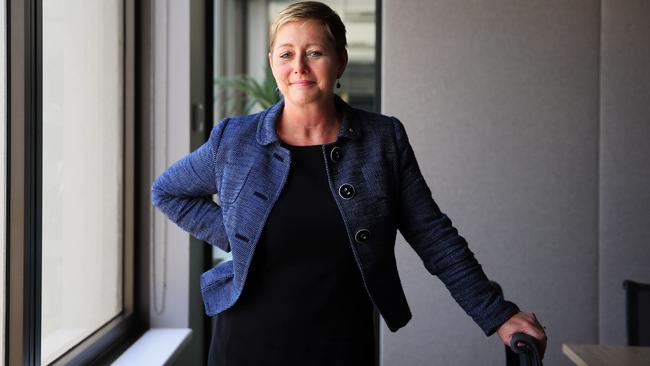Superannuation council serious about climate risk
The Australian Council of Superannuation Investors has put the top 200 listed companies on notice over their climate policies.

Business
Don't miss out on the headlines from Business. Followed categories will be added to My News.
The Australian Council of Superannuation Investors has put the top 200 listed companies on notice over their climate policies, threatening to take action that could see directors ousted if they fall short on managing climate-related risks.
As part of its new climate change policy released on Monday, ACSI will use its financial clout to push corporate Australia forward on climate change, pledging to recommend members vote against director re-election where companies fail to take adequate climate action. The influential ACSI, which advises more than $1 trillion of industry super funds and institutional investors including behemoths AustralianSuper, Aware Super and QSuper, in its new policy also called on policymakers to deliver “credible and continued support for action to achieve a net-zero emissions and climate-resilient economy”.
It comes days after the Prime Minister appeared at a US virtual climate summit and said Australia was “well on the way” to reaching a 26 to 28 per cent reduction in 2005 emissions levels by 2030 but failed to commit to net zero emissions by 2050.
“Climate change is one of the greatest challenges facing companies and investors today,” ACSI CEO Louise Davidson said. “We’ve been working with companies on climate change for a long time and we see this (policy) as a logical next step in that process.”

While some companies had been proactive and forward-thinking on the impact of climate change on their portfolio, others were simply “not moving fast enough”, she said.
“Instead of just asking people to report and to talk to us about what they’re doing, we’re now saying governance for this sits with the board, and we will hold the board accountable if we don’t believe that the company is doing as much as they need to on climate.
“Climate change risks are deeply embedded in the financial system and impact all sectors and asset classes. For long-term investors, this poses a serious challenge to long-term value creation across investment portfolios.”
ACSI’s “active and constructive engagement” with the top 200 listed companies had led to improvements in company practices, she said, as she cautioned that more needed to be done.
“Not all companies have listened to investor expectations … In order to increase the focus on climate-related risks in the companies they invest, ACSI may recommend members vote against the re-election of directors.”
ACSI will only take action against directors after “extensive engagement” with the laggards and would focus on the individual directors most accountable for oversight of climate change-related risks, the super fund adviser said. The mandate will be applied from next year and will initially focus on the top 200 companies in climate-exposed sectors such as energy, utilities, transport, and materials. The companies were advised of the policy recently and have eight months “to really think about how they’re getting their house in order”, Ms Davidson said.
ACSI’s harder line comes days after Scott Morrison told global leaders that Australia’s path to net-zero emissions would be achieved by “technology, not taxes” and that the nation would get there as soon as possible, “preferably” by 2050.
Ms Davidson called for a firm commitment from the government. “Australia needs to commit to net zero by 2050. And we also need to have midterm targets; 2030 targets,” she said.
“The problem from an investment perspective is there’s a risk that Australia ends up on the receiving end of some pretty nasty carbon trade tariffs.
“And for Australian companies, there’s a risk in terms of reduced availability of capital if Australia as a nation can’t step up on the climate target front.”
Alongside 2030 targets and a commitment to achieving net zero by 2050, ACSI is calling on policymakers to ensure a managed energy-sector transition, including credible integration of climate change and energy policy and to build resilient communities and economies.
More Coverage
Originally published as Superannuation council serious about climate risk




